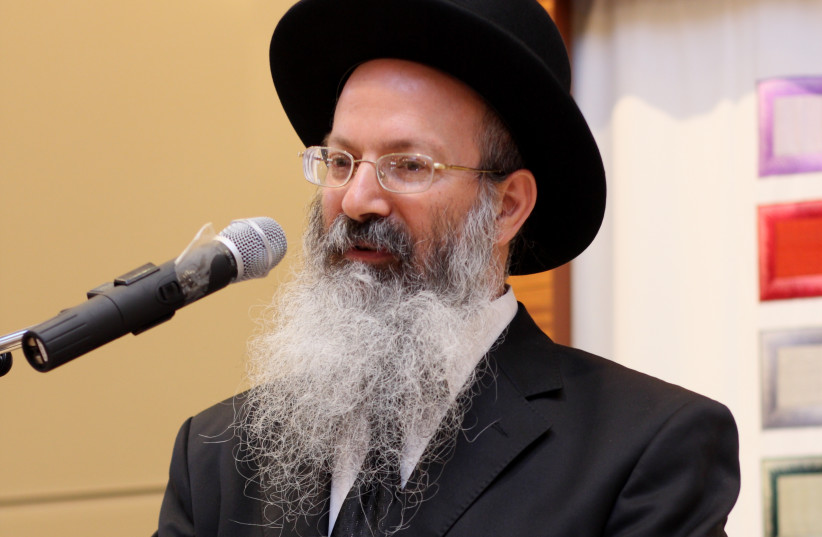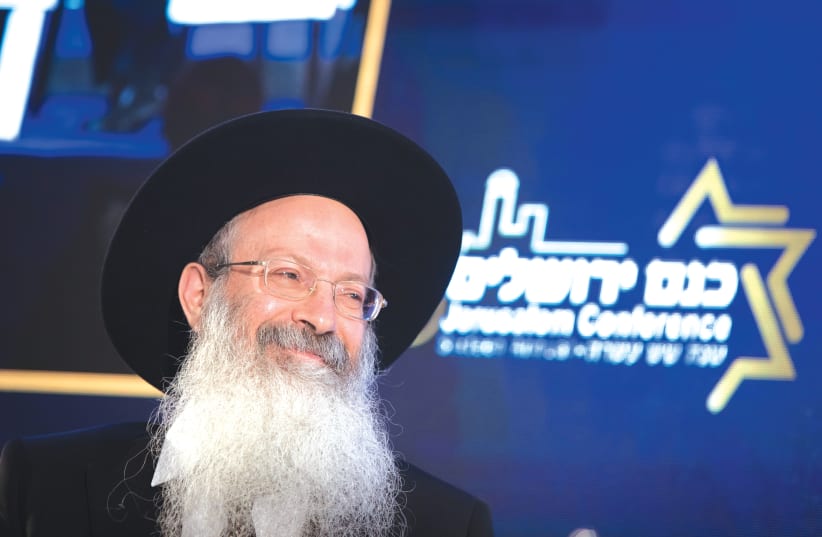Rabbi Eliezer Melamed is a respected Israeli Orthodox halachic authority whose numerous works on Jewish law are presented so clearly, have been so widely embraced, that they are regularly included in K-12 curricula throughout Israel. What has not attracted similar accolades until now is his engagement and dialogue with the Reform and Conservative Jewish communities throughout the world. In fact, these efforts have led to his being verbally attacked and even boycotted. The irony is that this man – who seeks to bring people together, to break down walls, to understand the challenges of Diaspora Jewry – is now being canceled.
The controversy surrounding Rabbi Melamed is the result of his dialogue with Reform Jews. The storm escalated when his opponents, including Rabbi Meir Mazuz and Rabbi Dov Lior, withdrew their approval of his series entitled Pearls of Halacha.
As an Orthodox Jew connected to Diaspora Jewry, this saddens and worries me. We seem to have forgotten how to “love your neighbor as yourself.” Of course we are allowed to disagree – the Talmud and Jewish tradition are replete with opposing views – but we should not boycott.
I recently told participants at a conference held in Israel featuring former senator Joe Lieberman on the topic of Shabbat, that even though many towns in Israel shut the gates that surround the town on Shabbat to prevent cars from being driven on the Sabbath, in Efrat we have chosen to leave them open in order to allow people who choose to drive to visit and have Shabbat meals with their local family members.
There were those who attacked this decision. Their anger confuses me. What right do I have to prevent a family from sitting down together for kiddush? By what divine authority can I prevent people from joining in Shabbat prayers just because they choose to drive home later? These attacks have intensified my fear that we have lost our way.


In his book Israel’s National Consciousness, Rav Abraham Isaac Kook wrote, “We must love one another, not with the love that is reserved for all human beings, but with the true love that is worthy of brothers who come from one father.”
Rav Kook’s words are the cornerstones of Rav Melamed’s behavior. He is not encouraging us to abandon Orthodoxy or value one denomination over another. He is challenging us to recognize other Jews, to get to know them, and to learn about the challenges they face as Jews in the Diaspora. And for this we must boycott him? Even if the rabbis who withdrew their approval from Rav Melamed’s books criticize the discourse – because they fear it will legitimize the Reform movement – nothing in the conversation detracts from his great knowledge of the world of traditional Orthodox Halacha.
Rav Melamed has chosen the path described by the Mishna in Pirkei Avot: “And you should judge each person favorably.” There are those who chose to stick to the polarizing discussions coursing through social media and TV networks. They do not seek out sincere and open dialogue. We have been educated to think critically and to challenge each other in good faith. We cannot be conditioned to boycott those who think differently.
Former chief rabbi of the UK and Commonwealth, and my personal role model, the late Rabbi Lord Jonathan Sacks, once said that there is a “wall of fear and misunderstanding between a Jew and a Jew.” Rav Melamed seeks to shatter this wall. He should be commended for his efforts to gain a real understanding of what drives the various denominations within Judaism and to better appreciate and relate to the current challenges and attitudes of Diaspora Jewry in 2021. This is the only way for Israelis to connect with the broad spectrum of religious and cultural practices of Diaspora Jewry.
“Act for the sake of those who went into fire and water for the sanctification of Your Name,” says the Avinu Malkeinu prayer. One of the explanations as to why both fire and water are mentioned is that fire represents a soul without a body, while water represents a body without a soul.
Throughout the ages, our enemies have tried to destroy the Jews both spiritually and physically. In recent decades, assimilation has been the biggest threat to the Jewish people. Rav Melamed wants to build a bridge so that more of our people do not get lost. The boycotters would be wise to join the effort rather than interfere. As I said in response to the issue of keeping the city gates of Efrat open on Shabbat: it is time to bring people closer, not to push them further away.
The writer, mayor of Efrat since 2008, has been a leader in engaging in dialogue with Jews from different backgrounds.
